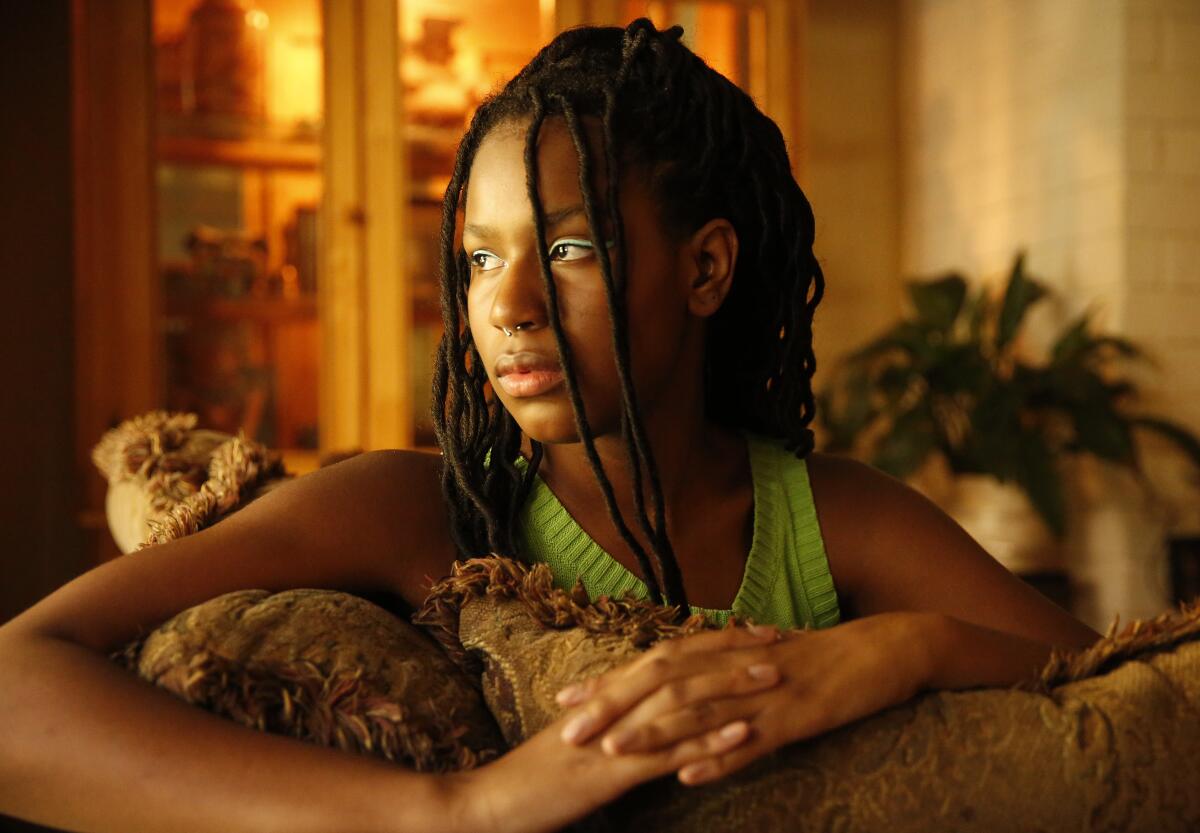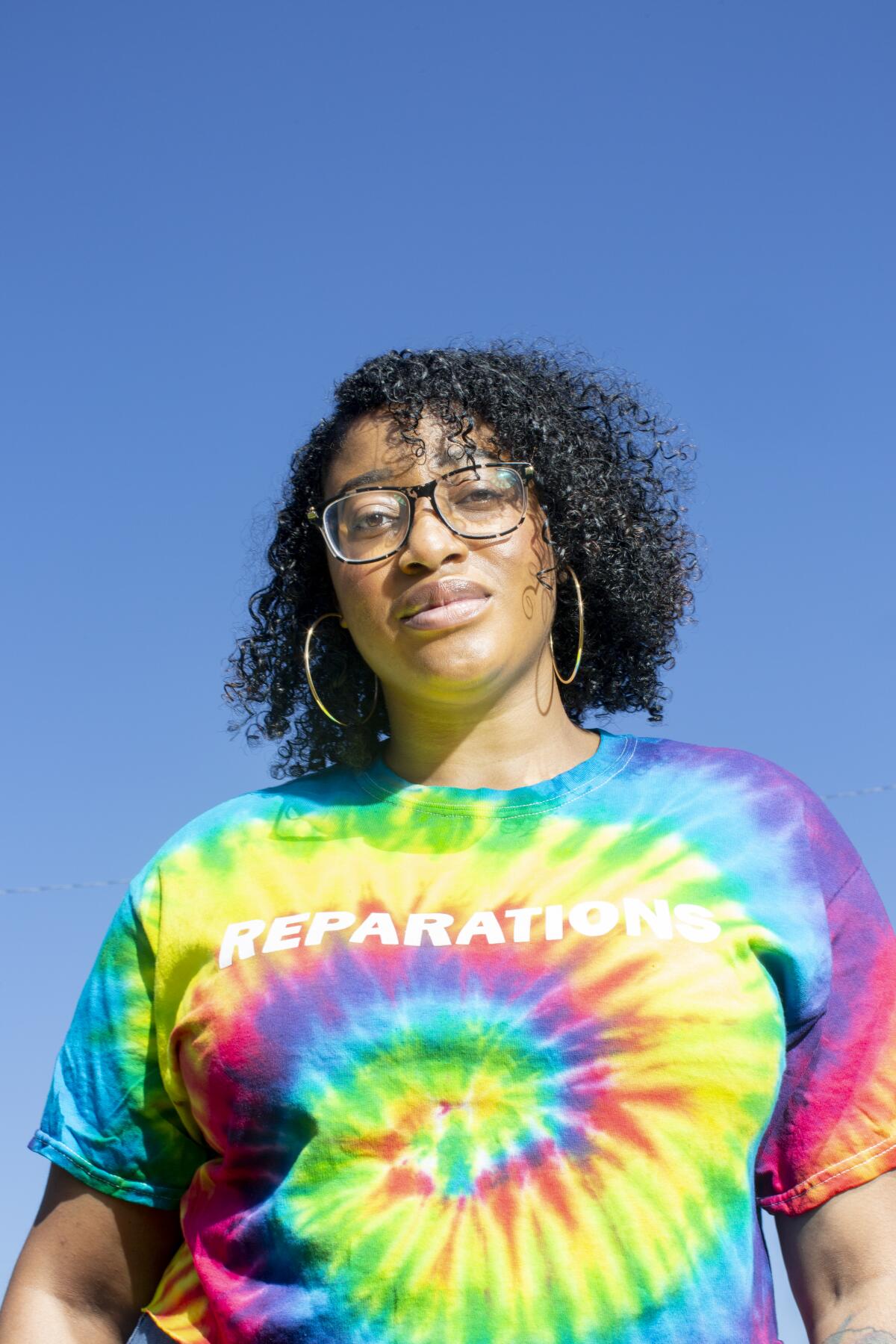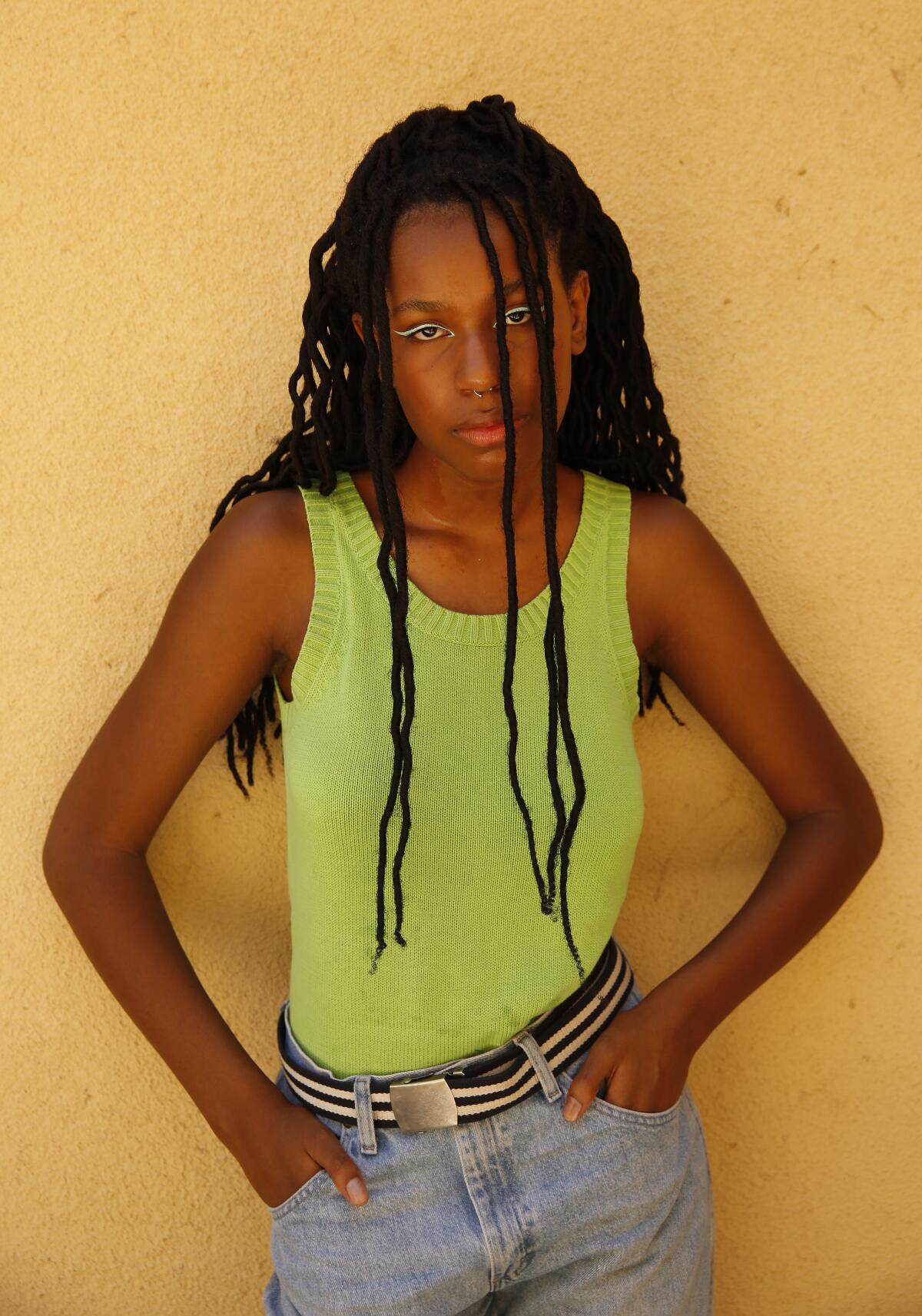‘They can’t silence us.’ Instagram accounts recount racism at L.A.’s elite private schools

- Share via
Black at Harvard-Westlake. Dear Flintridge Sacred Heart Academy. Black at Oakwood School. Oaks Christian Stories. Dear Polytechnic School. These are among the Instagram accounts linked to some of L.A.’s most elite private schools — but created by students and alumni who are going public with personal stories of racism that have otherwise gone unheard.
In an outpouring born of the national Black Lives Matter movement, these private school letter-writers talk of their encounters with bias, exclusion and microaggressions at schools where annual tuition can run as high as $40,000, and class sizes can be as low as 15 students.
For the record:
11:29 a.m. Aug. 3, 2020A photo caption on this story incorrectly says that DeShawn Samad helps run the dear_fsha Instagram account. Samad is involved in diversity efforts at Flintridge Sacred Heart Academy, but the account was created and is run by Maya Richard-Craven.
Their comments offer an unsparing counterpoint to the guarded reputations and carefully curated images of diversity and inclusion that independent schools display on websites and marketing brochures and have forced rare public apologies from top school leaders who pledge to make changes.
“These pages are the most authentic racial data and racial audit that a school would ever receive,” said Ralinda Watts, a private Los Angeles diversity practitioner who works with schools. “Now, a school can’t say they don’t know.”
The Instagram posts, most of which are anonymous, are shared on accounts that can have thousands of followers — offshoots of similar social media campaigns among students and alumni nationwide who are calling out racial injustices on their campuses.
“We are at a position where we don’t have anything to lose,” said DeShawn Samad, a 2011 alum of Flintridge-Sacred Heart Academy, an independent Catholic school in La Cañada-Flintridge. “They can’t silence us... because we’re no longer at those schools.”

The stories include a range of first-person experiences involving other students, faculty and parents. On @blackathw, linked to Harvard-Westlake in Los Angeles, one post describes the writer attending their first basketball game as a freshman: “I waited in line at Taper Gym, only to be accused of stealing my ticket by the athletic director.”
On @blackatcampbell, for Campbell Hall in Studio City, one writer notes, “I had a white teacher say that living in Hollywood was like living in the ghetto.”
Archer School, Brentwood School, the Buckley School, Campbell Hall, Mayfield Senior School, Marymount High School, Marlborough School, Oakwood School, and Westridge School are among the campuses where such Instagram accounts have emerged. Several were created in protest after the schools made public announcements in support of the Black Lives Matter movement — words that rang hollow for students who felt the institutions don’t do enough to address racism within their own walls.
Samad sees her involvement in the Flintridge Sacred Heart account as a duty to support current and future Black students. After the killings of George Floyd, Breonna Taylor and Ahmaud Arbery, she participated in Black Lives Matter protests and took a hard look at the responses of institutions in her life. Following the protests, the first public statement from her high school called for prayers for racial reconciliation through a Facebook and Instagram photo, which she found lacking.
“You can’t pray away racism,” said Samad, an environmental engineer in Los Angeles. “You can’t solve racism with multi-ethnic heart hands.”
Some of the posts at various schools involve the use of the N-word by non-Black students or faculty. One post cited a group reading at Flintridge Sacred Heart Academy:
“Dear FSHA, the head of the English department shouldn’t be forcing students to read aloud the N-word.” An Instagram reply showed a response from a user who wrote: “The head of the English Department does nothing of the sort. I leave the verbalization of that slur up to each individual reader, finding it presumptuous as a white person to edit the work of a black author by omission.”
In comments to The Times, officials from Archer, Brentwood, Campbell Hall, Mayfield and Marlborough did not dispute the stories — they expressed dismay about students’ experiences. School administrators responded on social media, school websites and emails to their communities, announcing town halls, action plans and new measures such as anti-bias training for faculty and curricula reviews.
Sister Carolyn McCormack, president of FSHA, said the school is listening and apologized on Instagram.
“We want to acknowledge to all of you that Flintridge Sacred Heart, as an institution, is not perfect; we have made mistakes and we ask your forgiveness,” she wrote. “Please know that we are committed to doing all we can to educate ourselves to become better agents of change.”
Throughout the accounts, students of color repeatedly report being mistaken for other students or stereotyped based on their race: “Dear Mayfield, A coach said that we needed the Black girls on our team because they were good sprinters. We were all too afraid of him to say anything.”
Others describe being tokenized in the pursuit of marketing: “During my time at Brentwood, I was more of a prop than a student. To be seen and not heard.” In a post on @dear_marlborough, a writer said, “The parent community is racist, snobby, cliquey: the warm welcome is reserved for white people of wealth.”
While at the Buckley School in Sherman Oaks, Dana Nichols said she faced harmful stereotypes from classmates and was part of a new affinity group for Black women that other students called “reverse racist.” After graduating in 2010, she studied English in college and wrote to Buckley about their English curriculum, which she said hurt students of color who did not see themselves represented in the texts. She said only one Black faculty member acknowledged it.
A decade later, she discovered students at her alma mater were still having similar experiences. This time, she decided to go public and created the @BlackatBuckley Instagram account.
Head of School Alona Scott said the testimonies were heartbreaking.
“It’s leading us to double-down on our commitment to additional professional development, to revisions in our curriculum and our instructional practice and to holding ourselves at a greater level of accountability going forward,” she said.
Nick Richard-Craven graduated in June from Pasadena’s Polytechnic School, which he has attended since kindergarten and where he said he was frequently mistaken for the other three Black male students in his grade.
In a class this year, a teacher discussing racist themes in a novel compared racism to a “bad habit.” As one of two students of color in the class, Richard-Craven felt pressure to speak up.
“I said that I disagreed with that comparison,” he said. “I’d say racism is much more than just a bad habit.”
Telling a person of authority that they are wrong was stressful and uncomfortable, he said. But in a recent English class, his teacher selected multiple novels by authors of color, which “opened up the discussion for people who aren’t of color to talk,” a positive example of what needs to happen across the curriculum, he said.
John Bracker, Head of School at Poly, said in an email he respects the courage of students and alumni who have shared their stories.
“Their honesty humbles us as they make it clear that past efforts to mitigate institutional racism were not enough,” said Bracker. Among other actions, he said the school will hire a senior-level administrator to help advance the school’s work on equity and inclusion.

One creator of the @blackatoakwood account, Sikkiim Hamilton, wrote that during her sophomore year a white faculty member used the N-word multiple times while referring to explicit music another student was playing in class.
“I didn’t know what to do at all,” she said. “I just left the classroom and started crying.”
She reported the incident during her senior year but said she never received a satisfactory response. The head of school at Oakwood, Jaime Dominguez, said that the administration investigated and resolved the incidents, but actions were not clear to students due to privacy concerns.
“It’s obvious to me now that the mechanism we have didn’t provide a way for us to adequately get back to the student to create closure for them.”
Among other initiatives, the school is now working to develop a protocol that allows them to share responses to such incidents. He said that the school began a conversation with students, alumni, faculty and parents as soon as the account was started.
Watts said that the challenge for independent schools will be ongoing work and accountability to students and parents in years to come.
“They have now learned this information, they’ve now learned that they have to do more,” she said. “Now the question is how do you move from learning to growth?”
More to Read
Sign up for Essential California
The most important California stories and recommendations in your inbox every morning.
You may occasionally receive promotional content from the Los Angeles Times.











